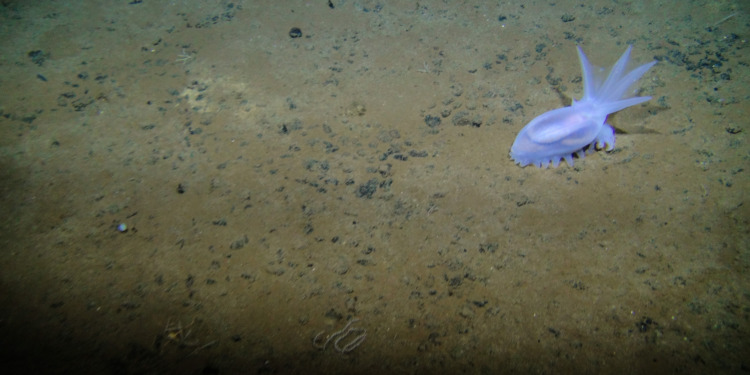After three weeks of intense negotiations on deep-sea mining at the International Seabed Authority (ISA) meetings in Jamaica, no green light was given to deep-sea mining and no regulations were adopted.
The 168 member states ISA Assembly ended today, after fierce negotiations on a proposal to, for the first time, discuss the protection of the marine envrîronment and whether deep-sea mining should go ahead. The proposal by Chile, Vanuatu, Palau, France and Costa Rica was blocked by a handful of states all through the Assembly week. However, in the last hour of the Assembly, the champion states ensured that the protection of the marine environment will be held at the next Assembly in mid-2024.
“We’ve seen intense debate at the ISA between those who want to progress deep seabed mining, and those who are wisely choosing a more precautionary stewardship to preserve the common good of humankind,” says Jessica Battle, Lead for WWF’s No Deep Seabed Mining Initiative. “The compromise decision reached here today opens the door to have a proper discussion on protecting the marine environment and whether deep seabed mining can at all go ahead, importantly involving all member states of the ISA. This is an important step forward.”
”Over the last three weeks across the world, what’s become clearer everyday is that more governments, businesses, financial institutions, scientists, civil society, Indigenous Peoples, faith groups and communities are taking a stand against deep seabed mining – as they recognise the injustice and destruction it will bring”, Battle continues.
A total of 21 countries have to date joined in the call for a ban, precautionary pause or moratorium on deep seabed mining, with Canada, Brazil, Finland and Portugal making announcements during the ISA meetings. Companies representing 32% of the global tuna industry announced their concerns, 37 financial institutions managing over 3.3 trillion euro in assets said potential risks need to be understood and the UN Commissioner on Human Rights advised governments against deep-sea mining.
“The ocean is already under severe stress from multiple pressures including overfishing, pollution and climate change,” adds Battle. “Deep-sea mining would just add another pressure at a time when we should be restoring the ocean, so it can fulfill its potential as our main ally against the climate crisis. A functioning ocean ecosystem is the best buffer, best mitigation and best adaptation toll we have for addressing the impacts of climate change. A moratorium on deep-sea mining is the only choice until the science is in place and the effective protection of the marine environment can be guaranteed.”
Related Articles: Deep-Sea Mining: Disaster for the Planet or Sustainable Solution? | Debunking Deep Sea Mining Myths | You Can’t Mine the Seabed Without Proper Rules
Meanwhile, the much-awaited “two-year loophole” remains open, as no clear decision was given from the closing ISA Council last Friday. The looming threat of unregulated deep-sea mining remains, to which the full extent of its impact if allowed to go ahead is still unclear. Scientists estimate as little as 1.1% of the knowledge needed to draft science-based regulations exists.
What is clear however is that this extractive industry is not needed to support the green transition. A WWF commissioned report shows that the demand for the studied minerals can be reduced by 58% through technological choices, recycling and circular economy measures such as product-life extension and materials recovery. The European Academies Science Advisory Council also concluded the argument that deep-sea mining is needed for the green transition is misleading.
“The ocean is the foundation for all life on this planet,” says Kaja Lønne Fjærtoft, Policy Lead for WWF’s No Deep Seabed Mining Initiative. “We need to focus our efforts towards a circular economy – addressing both the dual biodiversity and climate crises together, or we risk solving neither.”
— —
This article was originally published by WWF and is republished here as part of an editorial collaboration with WWF.
Editor’s Note: The opinions expressed here by the authors are their own, not those of Impakter.com — In the Featured Photo: Sea cucumber Amperima sp. on the seabed in the eastern Clarion-Clipperton Fracture Zone. Image courtesy of Craig Smith and Diva Amon, ABYSSLINE Project / NOAA Office of Ocean Exploration and Research.










